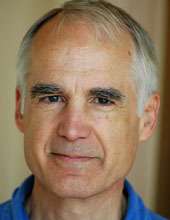Hunter Lewis

Hunter Lewis (born October 1947) is the co-founder of Cambridge Associates LLC, a global investment firm, and author of books in the fields of economics and moral philosophy.
Early life
Lewis was born in Dayton, Ohio, USA, in 1947 and graduated from Groton School and Harvard University (AB 1969).[1]
Cambridge Associates
After working at the Boston Company, then one of the largest investment managers, where he became a vice president in 1972, Lewis in 1973 co-founded and served as co-chief executive and then chief executive of Cambridge Associates LLC,[2] an investment advisor to American research universities and colleges representing over three-quarters of U.S. higher education endowment assets, other non-profits, international organizations, and families, with offices in the U.S., Europe, and Asia.[2] Lewis was a co-inventor of what became known as the American University style of institutional investing,[3][4] which gave American university endowment funds the highest investment returns in the world among institutional investors,[5] and which became widely emulated. Cambridge Associates also became known for its stated intention of avoiding the conflicts of interest endemic to Wall Street,[6] conflicts that became especially apparent during the Crash of 2008. Cambridge Associates has said that its mode of “conflict free” services represents an important innovation in American finance.[2]
Other activities
Lewis has been active in the environmental and natural health fields. He has been president of the Alliance for Natural Health-USA,[7] chairman of the National Environmental Trust,[8] chairman of the Worldwatch Institute,[8] chairman of Shelburne Farms,[9] treasurer of the World Wildlife Fund, trustee of World Wildlife Fund International,[10] and trustee of the Rockefeller Brothers Fund.[8] In addition to natural health and the environment boards, he has also been president of the American School of Classical Studies at Athens, chairman of Dumbarton Oaks,[8] trustee of the Morgan Library,[8] trustee of the Thomas Jefferson Foundation,[8] trustee of Groton School,[8] and member of the World Bank Pension Finance Committee.[8].
Publications
Lewis has written for the New York Times[11] The Times of London,[12] the Washington Post,[13][14][15] and the Atlantic Monthly[16] as well as numerous websites such as Forbes.com[17][18] and Realclearmarkets.com. Books on economics include: Economics in Three Lessons & One Hundred Economic Laws (Axios Press; October 1, 2017),[19] Crony Capitalism in America: 2008-2012 (AC² Books; September 1, 2013), Where Keynes Went Wrong: And Why World Governments Keep Creating Inflation, Bubbles, and Busts (Axios Press; September 25, 2009),[20] Are the Rich Necessary?: Great Economic Arguments and How They Reflect Our Personal Values (Axios Press; September 25, 2007; Rev and expanded PB edition October 30, 2009),[21] The Real World War (Coward, McCann & Geoghegan/Putnam; 1982). Books on moral philosophy include: The Secular Saints: And Why Morals Are Not Just Subjective (Axios Press, 2018), A Question of Values: Six Ways We Make the Personal Choices That Shape Our Lives (Harper, Collins; 1990, Axios Press; Rev edition May 25, 2000), The Beguiling Serpent (Axios Press; August 31, 2000), Alternative Values: For and Against Wealth, Power, Fame, Praise, Glory, and Physical Pleasure (Axios Press; July 25, 2005). Articles include, among others: "Sustainability, The Complete Concept: Environment, Healthcare, and Economy".[22]
Articles
- Is Ben Bernanke A Conservative?, Forbes.com, January 18, 2006
- A New Robber Baron Era?, Forbes.com, November 8, 2007
- Sustainability, The Complete Concept: Environment, Healthcare, and Economy, ChangeThis, October 15, 2009
- When Asked To Defend The Fed's Policies, Committed Keynesians Obfuscate, Forbes.com, October 28, 2013
References
- ↑ Dahl, Stephanie (2009-10-13). "Business Visionaries: Hunter Lewis". Forbes. Retrieved 28 October 2010.
- 1 2 3 "Cambridge Associates". Archived from the original on 2006-10-24.
- ↑ Groton School Quarterly, Vol. LXIX, No. 3, September, 2007
- ↑ John F. Berry (Nov 30, 1981). "Teaching Universities". The Washington Post. p. 1.
- ↑ "NACUBO Endowment Study". Archived from the original on 2008-04-14.
- ↑ "Investment Adviser Public Disclosure".
- ↑ "ANH-USA".
- 1 2 3 4 5 6 7 8 Who's Who in America
- ↑ Shelburne Farms website
- ↑ World Wildlife Fund
- ↑ "Globenomics". New York Times. Jan 15, 1984.
- ↑ "The Times". London. Jan 19, 2010.
- ↑ "Washington Post". Jan 9, 1977. p. k-3.
- ↑ "Washington Post". Feb 12, 1977.
- ↑ "Washington Post". Mar 20, 1977. p. H-3.
- ↑ "Capitol Hill's Ugliness Club". Atlantic Monthly. Feb 1967. p. 60.
- ↑ Lewis, Hunter (1 January 2006). "Is Ben Bernanke a Conservative?". Forbes. Retrieved 29 Oct 2013.
- ↑ "When Asked To Defend The Fed's Policies, Committed Keynesians Obfuscate". Forbes. 28 Oct 2013. Retrieved 29 Oct 2013.
- ↑ Silverstein, Barry (2017-08-27). "Review of Economics in Three Lessons & One Hundred Economics Laws". Forward Reviews. Retrieved 2017-09-29.
- ↑ "For the Holidays, a Multimedia Guide to Economics". Dec 14, 2009.
- ↑ Hurt III, Harry (October 21, 2007). "A Lens on Wealth, From All the Angles". The New York Times.
- ↑ Hunter Lewis (15 October 2009). "Sustainability, The Complete Concept: Environment, Healthcare, and Economy". Issue 63 (section 63.03). ChangeThis. Retrieved 12 January 2011.
External links
Further reading
- "Hunter Lewis", Who's Who in America, New Providence, NJ: Marquis, 2007, page 2687